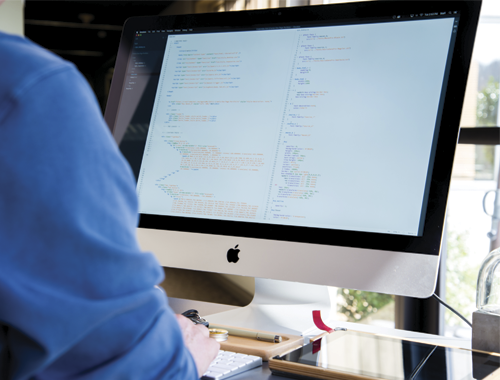Out-of-the-box ERP is simply not for everyone. If every business could fit into a general ERP application, there wouldn’t be much competition out there. Businesses with specific processes and needs benefit from ERP customization. ERP customization allows companies to use an out-of-the-box ERP system, but then tailor and add business applications to make the system perform to their needs.
Software developers can create these applications to integrate with your ERP system and fine-tune processes. However, all the work for customizations does not rely solely on the developer. For a custom application to truly benefit your business, there are six ways that a business should prepare themselves for ERP customization.
End User Communication
Although this may seem obvious, often times the developer will only speak with the managers, executive positions, and consultants. This leaves it up to the business to discuss the ERP customization with end users. This is critical because the concerns and needs of the end user are the most important part of customizing software.
Detailed Specifications
Creating a document with all your specifications can be extremely helpful to the developer meeting all your needs. These specifications can include timeline requirements, security requirements, data samples, or process requirements. The more information you can give, the better the ERP customization will suit your business.
Strong Communication
When choosing a developer for your ERP customization, you need to be able to have good lines of communication. If you are having difficulty getting in touch with them, you need to consider how this will play out if you have any changes in requirements or clarifications.
Data
You should provide the developer of the ERP customization with real world data for testing. By using data that is a good reflection of your day-to-day processes, you can ensure the application is tested accurately. From this, you can learn how the application will react if data in input incorrectly.
Testing
The developer will test the application themselves when completed, however, it is important that you test it too. Those at the company who also will be using the ERP customization should also test the application to ensure that everything you needed exists in the system and is capturing data correctly.
Training
The developer may train a few of those that were heavily involved in the ERP customization to use the new application, but it is important that every person that will touch it is trained thoroughly. If you want the customization to be worth the time and money, you need to make sure that team members are knowledgeable in the new software.
A businesses role in the ERP customization process is just as important as the developers. A developer cannot read your mind, so if clear communication isn’t reached, you simply won’t get an application that meets your expectations. ERP customization is worth your time and money to achieve processes that are more efficient, however, you and the developer will need to work as a team.
This white paper will walk you through six of the biggest mistakes you can make in your ERP decision process and show you how you can avert them.Learn More Here



